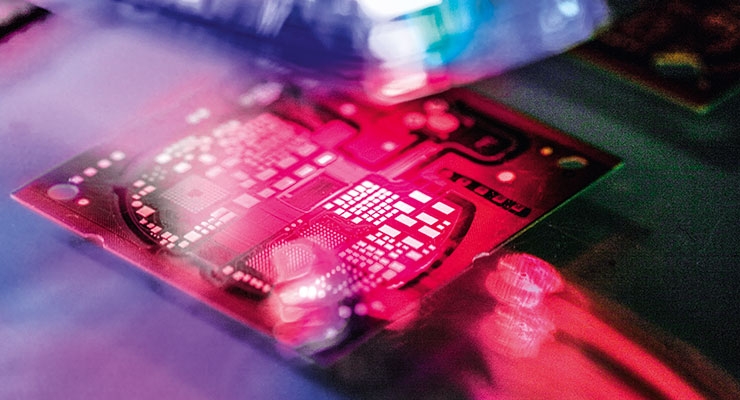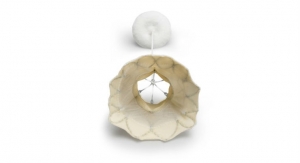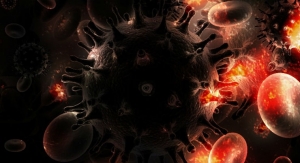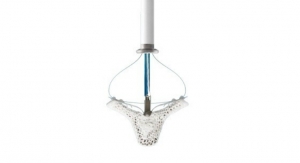Michael Barbella, Managing Editor09.07.18
Natalia Trayanova dreams of the day cardiac arrhythmia is virtually eradicated from society.
Literally.
Or, more precisely, virtually.
Trayanova’s vision may come to pass sooner than she expects: The Johns Hopkins University professor/laboratory director has helmed development of a 3D virtual heart model that has clinically been proven to better detect lethal cardiac rhythms. Trayanova and her computational science-minded research team also are using the model to improve ablation guidance in an effort to “cure” arrhythmia.
“We believe that in using this approach we can decrease the number of unnecessary implantations of [defibrillator] devices and [therefore] save human lives,” Trayanova, Ph.D., a biomedical engineering professor and director of Johns Hopkins’ Computational Cardiology Lab, told a TEDx talk student audience last summer. “It has not been an easy road to get to this point.
Science, as you may know, is quite messy. But the attempt to bring computational science together with medicine has been a tricky and long road. If our approach indeed turns out to be a better predictor of sudden cardiac death, then this would be an amazing triumph of what we are trying to do.”
Trayanova’s virtual heart is already racking up numerous small victories outside the laboratory as Johns Hopkins researchers work alongside doctors to pinpoint and exterminate the rogue electrical signals in the heart that can lead to sudden cardiac death. The model’s most significant coup, however, occurred in 2016 with a landmark proof-of-concept study that showed Trayanova’s digital approach yielded more accurate predictions about future arrhythmic events.
The study forecasts were based on magnetic resonance imaging (MRI) records of heart attack survivors with damaged cardiac tissue who were at risk of developing a deadly arrhythmia (irregular heartbeat). The analysis encompassed data from 41 myocardial infarction patients with ejection fraction scores below 35 percent (ejection fraction measures the percentage of blood pumped out of the heart during contraction).
Cardiologists typically implant defibrillators in people with low ejection fraction scores to protect against future arrhythmias, but these devices can be risky for patients (infections, unexpected shocks, etc.). “In the clinic, the doctor uses [ejection fraction] to make this decision [about a defibrillator]. It turns out this is a very inaccurate predictor of arrhythmia. Why? Because ejection fraction is the number that describes blood flow—it has nothing to do with the electricity of the heart,” noted Trayanova, the project’s research supervisor. “It’s like you have an electrical problem at home but you call the plumber to fix it. It’s the same situation. Because of that, many patients will get devices they do not need.”
Trayanova’s virtual heart remedies this broad-brush treatment approach by incorporating representations of the electrical processes in cardiac cells and the communication among cells in each individualized patient model. The digital hearts also integrate ventricular or atrial geometry, scarring, and electrical waves to simulate the heart’s electrical functions and ascertain the likelihood of prospective faulty rhythms.
All 41 patients in the 2016 virtual heart study received defibrillators. Trayanova’s team assessed the cyber models’ predictive prowess by comparing the digital data with the recipients’ post-implantation records. The results were heartening: Higher-risk arrhythmia patients identified through the virtual models were four times more likely to develop irregular rhythms than their lower-risk counterparts. Moreover, the virtual hearts forecast arrhythmia occurrence in patients four to five times better than ejection fraction and other existing clinical risk predictors, both invasive and non-invasive.
“It turns out we were way better than anything out there—better than ejection fraction, better than any clinical assessment that has been attempted. By accurately predicting which patients are at risk of sudden cardiac death, the [virtual heart] approach will provide doctors with a tool to identify those patients who truly need the costly implantable device, and those for whom the device would not provide any life-saving benefits,” Trayanova said. “It’s something we set out to achieve. Should our virtual heart approach become a routine clinical test or [become] routine [in] clinical use, that would be an absolutely amazing merger of computational simulations with clinical medicine.”
Such a merger would be a blessing to patients and a boon to the global cardiac rhythm management (CRM) market, valued at $20.88 billion last year and expected to swell 7 percent annually to reach $38.56 billion in 2026, according to ResearchandMarket.com data.
Anticipated growth drivers for the sector include technological advancements (extended battery life, magnetic resonance imaging-safe devices) as well as wireless CRM products and self-monitoring options. Perhaps the most influential catalyst though, will be the significant increase in arrhythmias among the world’s oldest inhabitants: Industry statistics forecast atrial fibrillation—the most common form of arrhythmia—to affect 6 million to 12 million Americans by 2050 (up from 2.7 million to 6.1 million in 2015) and 17.9 million Europeans by 2060.
“The global aging of the population will determine an endemic that will result in a significant burden on healthcare systems and physicians taking care of these populations,” stated a March 2017 article in the Journal of Geriatric Cardiology.
To better understand the factors and concerns affecting the CRM market both now and in the future, Medical Product Outsourcing spoke to several industry professionals over the last few weeks. Participants included:
Rupa Basu, senior vice president of Marketing, Corporate Accounts, and Strategy at BIOTRONIK Inc., a developer, manufacturer, and seller of cardiovascular products and equipment. The company is based in Berlin, Germany, and has U.S. offices in both Lake Oswego, Ore., and New York, N.Y.
Michael Druding, senior director, Engineering, Cardiac Rhythm Management & Neuromodulation at Integer Holdings Corporation, a medical device outsource manufacturer headquartered in Plano, Texas.
Michael J. Pederson, senior vice president, Cardiac Arrhythmias and Heart Failure at Abbott Laboratories, a global healthcare provider of nutritional and diagnostic products as well as branded generic pharmaceuticals and medical devices. Its cardiac rhythm management offerings garnered $2.1 billion in sales last year for the company.
Michael Barbella: What trends are impacting the cardiac rhythm management (CRM) medtech market? What factor(s) are driving these trends?
Rupa Basu: The shift toward value-based care continues to impact all medtech sectors, including CRM. In practice, we’re seeing greater focus on patient education, increased preventive care, more solutions for early intervention and, importantly, an emphasis on preventing unnecessary procedures and keeping patients out of the hospital.
One focus in CRM is the need for more diagnostic tools to effectively improve patient outcomes and reduce financial burdens. With the right remote monitoring technology, physicians can use real-time data to adjust treatment plans, individualize care, and intervene before more serious problems arise that may require hospitalization. Earlier diagnosis and intervention can improve arrhythmia management and present opportunities to manage cardiac issues less invasively. While diagnostics play a critical role in improving care, cardiac devices remain essential solutions for millions of patients every day. The CRM industry continues to develop device systems that are less invasive, longer-lasting, and have increased diagnostic capability so patients can live each day to the fullest with confidence.
Michael J. Pederson: Cardiac rhythm management is a well-established space within the field of medical devices, but there is significant opportunity for innovation to improve outcomes for people living with arrhythmias. Some trends we’re driving are better tools for diagnosis, increasing patient involvement in their therapy experience, and looking at ways to improve how therapy is delivered to maximize the benefit for patients.
We are investing in technology that helps physicians diagnose complex conditions earlier in the care continuum. For example, with devices like Abbott’s smartphone-compatible Confirm Rx insertable cardiac monitor, we’re providing patients with new ways to monitor for abnormal heart rhythms while staying connected to their physician remotely. The goal is obviously to help physicians arrive at a better diagnosis to improve the care of their patients.
Along those lines, we’re also seeing an evolution related to the intersection of consumer technology and medical devices. How can we take cues from consumer technology that people are already comfortable with? Whether it’s empowering patients to use their smartphone to engage with their device or finding ways to update software wirelessly, companies like Abbott are now proactively looking to adapt how people interact with a medical device.
Finally, another trend we’re focused on is how we can continually improve how therapies are deployed to help patients feel better and live longer. For example, with technology such as Abbott’s Multipoint Pacing or SyncAV software, there is an opportunity to provide physicians more options for patients who aren’t responding effectively to traditional therapy.
Barbella: What factors are currently driving growth in the CRM medtech market? How have these growth factors evolved over the past 5 years?
Basu: CRM is one of the largest sectors within cardiology and the market is mature, accounting for $8 billion of the $156 billion U.S. cardiology medtech market. Diagnostics are driving market growth because of the continued evolution of value-based care models. Especially in the U.S. market, there is an emphasis on improving disease management through earlier interventions and increased patient education and engagement. Remote patient monitoring solutions such as BIOTRONIK Home Monitoring and implantable cardiac monitors including our BioMonitor 2 are some of the tools healthcare providers rely on to improve patient care through early diagnosis and intervention. The diagnostic capabilities within CRM device systems are improving as well. For example, acute sensors integrated into cardiac device systems have the potential to monitor a wider range of biologic responses and produce more a complete picture to inform therapy.
Pederson: Right now the growth of the CRM market is being driven by two factors: In established markets such as the United States and in countries across Europe, the aging population has generated a sustained demand for devices like pacemakers and ICDs. In emerging markets, improved diagnosis and access to new device technology has fueled demand.
Barbella: What specific areas are experiencing the most growth (pacing leads, arrhythmia, defibrillators, Afib, etc.)? Why are these areas flourishing as opposed to other sectors?
Basu: While the overall market remains flat, monitoring and diagnostic technology sectors are growing to help physicians intervene more quickly and provide the most appropriate treatment pathway for each patient. For example, the Baby Boomer patient population has an increasing need for cardiac care, but effective early intervention aims to keep them out of the hospital and treat them with less invasive solutions. The market is growing as we innovate in the direction of preventive care and diagnostics. The U.S. market for cardiac diagnostic monitoring is valued at $2.2 billion and forecasted to grow at 5 percent through 2019.
Pederson: We’re seeing strong growth in the ablation market for the treatment of conditions like atrial fibrillation and increasing demand for insertable cardiac monitors, which are wonderful tools physicians can leverage to arrive at a better, more accurate diagnosis for their patients.
Related to atrial fibrillation and other complex arrhythmias, there have historically been a lot of untreated patients battling these conditions who are now exploring new therapy options with their physician as a result of increased awareness, effective therapies, and better outcomes. We’re also seeing the industry move beyond just treating issues like stroke risk, which is an associated risk with a condition like atrial fibrillation and instead, we’re combatting the actual disease through ablation therapy.
Demand for insertable cardiac monitors has been exciting because there is so much potential to have a positive impact for people suffering from potential cardiac arrhythmias. For example, Abbott’s device, Confirm Rx, is the world’s first and only smartphone-compatible ICM designed to help physicians remotely monitor cardiac arrhythmias. By making a device smartphone compatible, we can help patients more easily engage in their healthcare while providing physicians with consistent data that allows them to make actionable insights to improve patient care. As a result, we’ve seen strong physician reception to the device.
Connected devices and remote monitoring have done so much to advance patient care in recent years, and we are only just beginning to see what this type of technology can do to help people live better and healthier lives.
Barbella: What challenges are involved in developing CRM devices, and how has your company overcome (or helped customers overcome) these challenges?
Basu: One challenge facing CRM is the need for innovation without sacrificing quality. As a privately held company, BIOTRONIK focuses on quality above all else. We don’t innovate for the sake of innovation or to satisfy shareholders. We heavily invest in research and development to provide safe, lifesaving solutions with long-term reliability. Our track record is evidence of this. BIOTRONIK has not had a Class I recall in more than two decades in an industry that has had more than two dozen, and we’ve never had a lead recall. We often sacrifice being first to market to focus on quality; we do not compromise on our commitment to quality. Every BIOTRONIK solution can be trusted by physicians and patients. When physicians choose BIOTRONIK solutions, they do so with confidence knowing that our technology can be trusted. Quality should always be paramount in CRM.
Michael Druding: One of the main challenges is the need to meet miniaturization requirements on the IPG size while maintaining or improving functionality and longevity. CRM devices provide life-sustaining therapy where reliability is of critical importance. Integer has a long history of producing innovative components with a high degree of reliability. This is accomplished by placing quality and reliability first and foremost in our designs, manufacturing processes, and culture. Every associate at Integer is committed to the highest level of quality and patient safety.
Integer has been able to keep pace with the market needs, and in many instances our technology has helped our customers push the boundaries of traditional designs to anticipate market needs for the next five to 10 years.
Pederson: Across the industry, one of the biggest challenges companies face is ensuring the security of medical devices as more and more devices have a connectivity component. As I mentioned, the rise in connected devices and remote monitoring capabilities has had a profoundly positive impact for patients and their physicians, but the security of those devices has to be a top priority.
More than ever before, the industry has to be vigilant about the cybersecurity of connected devices and continue to develop, test, and improve the security of devices as the technology landscape evolves.
At Abbott, we have developed, and continue to enhance, a range of features that incorporate security into the design and use of our products. We have an organization-wide focus on cybersecurity—from our senior management to our technical support and sales reps in the field working directly with physicians. We have developed, and continue to enhance, our product design; cybersecurity risk assessment, and post-market monitoring procedures to develop, test, assess, and improve the security of our devices as the technology landscape evolves.
Barbella: How are innovative manufacturing techniques and/or new technologies affecting CRM product designs?
Basu: BIOTRONIK is the most vertically integrated company in the industry because we never compromise on safety. Controlling components means controlling quality, so all the critical components that go into our devices are manufactured and produced by BIOTRONIK-owned companies. Cardiac devices are getting smaller and integrating more clinical functionalities every generation. Fitting more technology into smaller devices isn’t easy, which is why BIOTRONIK increasingly invests in advanced robotics to further our manufacturing processes. Production optimization drives quality assurance, minimizes errors and mitigates risk, giving us confidence and fostering trust with physicians and patients.
Druding: We’re increasingly using 3D printing to quickly and efficiently fabricate fixtures, tools, and manufacturing support equipment. We’re also researching the opportunity to use additive manufacturing with powdered metals to fabricate dies and tools for pressing and drawing applications.
The higher resolution/smaller spot size laser technologies allow us to reduce heat-affected zones while speeding up the weld processing times. We’re continuously evaluating various laser technologies (wavelengths, in particular) and processing techniques to effect the desired outcomes of controlled heat-affected zones and faster cycle times.
The wide range of advanced engineered plastics we’re incorporating into equipment, processes, and manufacturing lines are reducing net costs while improving performance.
We continue to invest in laser cutters for a variety of applications, from tube cutting to insulator cutting. The migration from mechanical cutting processes to laser cutting speeds up the process, minimizes collateral damage, and provides near-net shape and more pristine surface finishes/chamfers.
In many instances, using automated visual inspection processes in place of the human eye can improve the efficacy and consistency of results.
Many areas have incorporated automation and/or lean manufacturing excellence into their manufacturing systems; however, in very general terms most designs at the device level are done by addressing the market needs instead of Design for Manufacturability. In addition, most designs are pretty custom for the specific device and customer, which impacts the ability to implement effective and standard manufacturing systems, and leverage volume.
Pederson: Based in large part from what we see in the consumer technology space, patients and physicians now have the expectation that devices will continue to last longer, get smaller, and therapies will continue to improve. As a result, we have to continuously find new ways to innovate to meet those expectations while propelling medical technology forward to drive the best possible outcomes for patients. This is a complex process because we’re also driving innovation today to meet the challenges the health system will face five years from now. Related to product design, we also need to be considering how we develop the apps that interact with our devices or how we’re helping physicians and hospitals manage the data from our devices that could help them better manage their patients’ care.
We’re also always looking at our manufacturing processes to find new ways to maximize quality while ensuring that we’re leveraging best practices. We have a large global presence that enables us to continually identify ways to improve how we manufacture our devices in a way that can lower costs for the healthcare system broadly and improve Abbott’s operations overall.
Regarding new ways that we look to design our devices, I think we’re seeing more companies bring quality teams into the design process to identify opportunities for improvement early and taking advantage of those opportunities. By doing this we put quality teams and design teams side by side and ensure an effective approach from the beginning.
Barbella: What new CRM technologies are up and coming/on the horizon? What new CRM technologies can we expect to see in the next several years?
Basu: Unique innovations such as BIOTRONIK closed-loop stimulation (CLS) and DX technology have laid the foundation for truly customizable cardiac device therapy. CLS and DX enable physicians to individualize device systems from patient to patient, and advancements like these will continue to provide greater insight and enable further customization of care. Looking ahead, accessible health data is creating a more engaged patient population. This trend has empowered many patients to become increasingly knowledgeable about their well-being based on unprecedented personal insights and analytics. I expect the CRM industry will continue to evolve technology that enables physicians to empower and engage patients through meaningful cardiac device data. Using data and technology to inform patients, reinforce care plans, and modify treatment in real time according to individual needs will lead to greater compliance, better disease management, and ultimately keep patients healthy and out of the hospital.
Pederson: As I previously mentioned, Abbott has developed a smartphone-compatible ICM, and we are working to incorporate smartphone compatibility into other CRM products. We’ll see the industry move towards digital health and smartphone compatibility as device makers look for ways to help patients engage in their healthcare while providing physicians with the data they need to make more accurate diagnoses and provide better treatment options.
Additionally, we will see the industry continue to work on enhancing and developing leadless pacing. Leadless pacemakers represent the biggest change in the CRM market in decades. A dual-chamber leadless pacemaker, which Abbott is working on developing, has the potential to have a significant effect on the market.
Barbella: Please discuss the future growth prospects of the CRM medtech market. What trends and/or challenges could potentially affect future gains?
Basu: Heart disease is the leading cause of death in the United States. There will always be a patient need for CRM solutions, creating a consistent, robust market. The U.S. CRM market is projected to reach $10 billion by 2022 and future growth is expected to be around 1-2 percent. Pacemaker and ICD technologies have been effective for decades, which puts the CRM market on a slower innovation scale compared to other medtech markets. Today’s technology enables physicians to diagnose and treat patients sooner with more individualized, longer-lasting therapy—a meaningful market evolution. There will always be a need for CRM solutions and the industry continues to innovate where the need is greatest. That focus remains on more diagnostic tools and less invasive technology.
Druding: Growth prospects will rely heavily on the ability of a supplier or OEM to enable higher value through lower costs. Use of technology advancement offerings, manufacturing strategy excellence, or global footprint optimization will enable growth through better value.
Another important prospect for growth is the development of disruptive technologies that deliver unique value to the patient and healthcare providers. Traditional CRM products will continue to generate considerable revenue for the OEMs, but double-digit growth is most likely to come from new technologies like we’ve seen recently with leadless pacemakers, implantable monitors, and extravascular ICDs [implantable cardioverter defibrillators].
Additionally, the consolidation trend in the device market provides opportunities to companies that have clearly defined what manufacturing is and is not core to their business, and are highly vertically integrated with global scalability.
Pederson: I think relative to growth, we should continue to see new demand fuel innovation that will help companies like Abbott develop new devices that improve the quality of life for patients. Arrhythmias are complicated conditions, and we’ll continue to find ways to treat them better and improve outcomes. As long as we do that—and find ways to continuously improve—the demand for these devices will remain strong.
The other piece that’s important to consider here is how companies are addressing co-morbidities that patients face and how physicians are managing those complex conditions. At a company like Abbott, we’re focusing on how we help physicians treat patients who may be battling an arrhythmia and who may need a medical device, but who may also be battling diabetes, face nutritional challenges, and who could be facing early-stage heart failure. The benefits of a company such as ours is we can leverage expertise across a number of businesses and collaborate with physicians from a number of angles and really focus on how we help treat the whole person—not just a single condition they may face.
Literally.
Or, more precisely, virtually.
Trayanova’s vision may come to pass sooner than she expects: The Johns Hopkins University professor/laboratory director has helmed development of a 3D virtual heart model that has clinically been proven to better detect lethal cardiac rhythms. Trayanova and her computational science-minded research team also are using the model to improve ablation guidance in an effort to “cure” arrhythmia.
“We believe that in using this approach we can decrease the number of unnecessary implantations of [defibrillator] devices and [therefore] save human lives,” Trayanova, Ph.D., a biomedical engineering professor and director of Johns Hopkins’ Computational Cardiology Lab, told a TEDx talk student audience last summer. “It has not been an easy road to get to this point.
Science, as you may know, is quite messy. But the attempt to bring computational science together with medicine has been a tricky and long road. If our approach indeed turns out to be a better predictor of sudden cardiac death, then this would be an amazing triumph of what we are trying to do.”
Trayanova’s virtual heart is already racking up numerous small victories outside the laboratory as Johns Hopkins researchers work alongside doctors to pinpoint and exterminate the rogue electrical signals in the heart that can lead to sudden cardiac death. The model’s most significant coup, however, occurred in 2016 with a landmark proof-of-concept study that showed Trayanova’s digital approach yielded more accurate predictions about future arrhythmic events.
The study forecasts were based on magnetic resonance imaging (MRI) records of heart attack survivors with damaged cardiac tissue who were at risk of developing a deadly arrhythmia (irregular heartbeat). The analysis encompassed data from 41 myocardial infarction patients with ejection fraction scores below 35 percent (ejection fraction measures the percentage of blood pumped out of the heart during contraction).
Cardiologists typically implant defibrillators in people with low ejection fraction scores to protect against future arrhythmias, but these devices can be risky for patients (infections, unexpected shocks, etc.). “In the clinic, the doctor uses [ejection fraction] to make this decision [about a defibrillator]. It turns out this is a very inaccurate predictor of arrhythmia. Why? Because ejection fraction is the number that describes blood flow—it has nothing to do with the electricity of the heart,” noted Trayanova, the project’s research supervisor. “It’s like you have an electrical problem at home but you call the plumber to fix it. It’s the same situation. Because of that, many patients will get devices they do not need.”
Trayanova’s virtual heart remedies this broad-brush treatment approach by incorporating representations of the electrical processes in cardiac cells and the communication among cells in each individualized patient model. The digital hearts also integrate ventricular or atrial geometry, scarring, and electrical waves to simulate the heart’s electrical functions and ascertain the likelihood of prospective faulty rhythms.
All 41 patients in the 2016 virtual heart study received defibrillators. Trayanova’s team assessed the cyber models’ predictive prowess by comparing the digital data with the recipients’ post-implantation records. The results were heartening: Higher-risk arrhythmia patients identified through the virtual models were four times more likely to develop irregular rhythms than their lower-risk counterparts. Moreover, the virtual hearts forecast arrhythmia occurrence in patients four to five times better than ejection fraction and other existing clinical risk predictors, both invasive and non-invasive.
“It turns out we were way better than anything out there—better than ejection fraction, better than any clinical assessment that has been attempted. By accurately predicting which patients are at risk of sudden cardiac death, the [virtual heart] approach will provide doctors with a tool to identify those patients who truly need the costly implantable device, and those for whom the device would not provide any life-saving benefits,” Trayanova said. “It’s something we set out to achieve. Should our virtual heart approach become a routine clinical test or [become] routine [in] clinical use, that would be an absolutely amazing merger of computational simulations with clinical medicine.”
Such a merger would be a blessing to patients and a boon to the global cardiac rhythm management (CRM) market, valued at $20.88 billion last year and expected to swell 7 percent annually to reach $38.56 billion in 2026, according to ResearchandMarket.com data.
Anticipated growth drivers for the sector include technological advancements (extended battery life, magnetic resonance imaging-safe devices) as well as wireless CRM products and self-monitoring options. Perhaps the most influential catalyst though, will be the significant increase in arrhythmias among the world’s oldest inhabitants: Industry statistics forecast atrial fibrillation—the most common form of arrhythmia—to affect 6 million to 12 million Americans by 2050 (up from 2.7 million to 6.1 million in 2015) and 17.9 million Europeans by 2060.
“The global aging of the population will determine an endemic that will result in a significant burden on healthcare systems and physicians taking care of these populations,” stated a March 2017 article in the Journal of Geriatric Cardiology.
To better understand the factors and concerns affecting the CRM market both now and in the future, Medical Product Outsourcing spoke to several industry professionals over the last few weeks. Participants included:
Rupa Basu, senior vice president of Marketing, Corporate Accounts, and Strategy at BIOTRONIK Inc., a developer, manufacturer, and seller of cardiovascular products and equipment. The company is based in Berlin, Germany, and has U.S. offices in both Lake Oswego, Ore., and New York, N.Y.
Michael Druding, senior director, Engineering, Cardiac Rhythm Management & Neuromodulation at Integer Holdings Corporation, a medical device outsource manufacturer headquartered in Plano, Texas.
Michael J. Pederson, senior vice president, Cardiac Arrhythmias and Heart Failure at Abbott Laboratories, a global healthcare provider of nutritional and diagnostic products as well as branded generic pharmaceuticals and medical devices. Its cardiac rhythm management offerings garnered $2.1 billion in sales last year for the company.
Michael Barbella: What trends are impacting the cardiac rhythm management (CRM) medtech market? What factor(s) are driving these trends?
Rupa Basu: The shift toward value-based care continues to impact all medtech sectors, including CRM. In practice, we’re seeing greater focus on patient education, increased preventive care, more solutions for early intervention and, importantly, an emphasis on preventing unnecessary procedures and keeping patients out of the hospital.
One focus in CRM is the need for more diagnostic tools to effectively improve patient outcomes and reduce financial burdens. With the right remote monitoring technology, physicians can use real-time data to adjust treatment plans, individualize care, and intervene before more serious problems arise that may require hospitalization. Earlier diagnosis and intervention can improve arrhythmia management and present opportunities to manage cardiac issues less invasively. While diagnostics play a critical role in improving care, cardiac devices remain essential solutions for millions of patients every day. The CRM industry continues to develop device systems that are less invasive, longer-lasting, and have increased diagnostic capability so patients can live each day to the fullest with confidence.
Michael J. Pederson: Cardiac rhythm management is a well-established space within the field of medical devices, but there is significant opportunity for innovation to improve outcomes for people living with arrhythmias. Some trends we’re driving are better tools for diagnosis, increasing patient involvement in their therapy experience, and looking at ways to improve how therapy is delivered to maximize the benefit for patients.
We are investing in technology that helps physicians diagnose complex conditions earlier in the care continuum. For example, with devices like Abbott’s smartphone-compatible Confirm Rx insertable cardiac monitor, we’re providing patients with new ways to monitor for abnormal heart rhythms while staying connected to their physician remotely. The goal is obviously to help physicians arrive at a better diagnosis to improve the care of their patients.
Along those lines, we’re also seeing an evolution related to the intersection of consumer technology and medical devices. How can we take cues from consumer technology that people are already comfortable with? Whether it’s empowering patients to use their smartphone to engage with their device or finding ways to update software wirelessly, companies like Abbott are now proactively looking to adapt how people interact with a medical device.
Finally, another trend we’re focused on is how we can continually improve how therapies are deployed to help patients feel better and live longer. For example, with technology such as Abbott’s Multipoint Pacing or SyncAV software, there is an opportunity to provide physicians more options for patients who aren’t responding effectively to traditional therapy.
Barbella: What factors are currently driving growth in the CRM medtech market? How have these growth factors evolved over the past 5 years?
Basu: CRM is one of the largest sectors within cardiology and the market is mature, accounting for $8 billion of the $156 billion U.S. cardiology medtech market. Diagnostics are driving market growth because of the continued evolution of value-based care models. Especially in the U.S. market, there is an emphasis on improving disease management through earlier interventions and increased patient education and engagement. Remote patient monitoring solutions such as BIOTRONIK Home Monitoring and implantable cardiac monitors including our BioMonitor 2 are some of the tools healthcare providers rely on to improve patient care through early diagnosis and intervention. The diagnostic capabilities within CRM device systems are improving as well. For example, acute sensors integrated into cardiac device systems have the potential to monitor a wider range of biologic responses and produce more a complete picture to inform therapy.
Pederson: Right now the growth of the CRM market is being driven by two factors: In established markets such as the United States and in countries across Europe, the aging population has generated a sustained demand for devices like pacemakers and ICDs. In emerging markets, improved diagnosis and access to new device technology has fueled demand.
Barbella: What specific areas are experiencing the most growth (pacing leads, arrhythmia, defibrillators, Afib, etc.)? Why are these areas flourishing as opposed to other sectors?
Basu: While the overall market remains flat, monitoring and diagnostic technology sectors are growing to help physicians intervene more quickly and provide the most appropriate treatment pathway for each patient. For example, the Baby Boomer patient population has an increasing need for cardiac care, but effective early intervention aims to keep them out of the hospital and treat them with less invasive solutions. The market is growing as we innovate in the direction of preventive care and diagnostics. The U.S. market for cardiac diagnostic monitoring is valued at $2.2 billion and forecasted to grow at 5 percent through 2019.
Pederson: We’re seeing strong growth in the ablation market for the treatment of conditions like atrial fibrillation and increasing demand for insertable cardiac monitors, which are wonderful tools physicians can leverage to arrive at a better, more accurate diagnosis for their patients.
Related to atrial fibrillation and other complex arrhythmias, there have historically been a lot of untreated patients battling these conditions who are now exploring new therapy options with their physician as a result of increased awareness, effective therapies, and better outcomes. We’re also seeing the industry move beyond just treating issues like stroke risk, which is an associated risk with a condition like atrial fibrillation and instead, we’re combatting the actual disease through ablation therapy.
Demand for insertable cardiac monitors has been exciting because there is so much potential to have a positive impact for people suffering from potential cardiac arrhythmias. For example, Abbott’s device, Confirm Rx, is the world’s first and only smartphone-compatible ICM designed to help physicians remotely monitor cardiac arrhythmias. By making a device smartphone compatible, we can help patients more easily engage in their healthcare while providing physicians with consistent data that allows them to make actionable insights to improve patient care. As a result, we’ve seen strong physician reception to the device.
Connected devices and remote monitoring have done so much to advance patient care in recent years, and we are only just beginning to see what this type of technology can do to help people live better and healthier lives.
Barbella: What challenges are involved in developing CRM devices, and how has your company overcome (or helped customers overcome) these challenges?
Basu: One challenge facing CRM is the need for innovation without sacrificing quality. As a privately held company, BIOTRONIK focuses on quality above all else. We don’t innovate for the sake of innovation or to satisfy shareholders. We heavily invest in research and development to provide safe, lifesaving solutions with long-term reliability. Our track record is evidence of this. BIOTRONIK has not had a Class I recall in more than two decades in an industry that has had more than two dozen, and we’ve never had a lead recall. We often sacrifice being first to market to focus on quality; we do not compromise on our commitment to quality. Every BIOTRONIK solution can be trusted by physicians and patients. When physicians choose BIOTRONIK solutions, they do so with confidence knowing that our technology can be trusted. Quality should always be paramount in CRM.
Michael Druding: One of the main challenges is the need to meet miniaturization requirements on the IPG size while maintaining or improving functionality and longevity. CRM devices provide life-sustaining therapy where reliability is of critical importance. Integer has a long history of producing innovative components with a high degree of reliability. This is accomplished by placing quality and reliability first and foremost in our designs, manufacturing processes, and culture. Every associate at Integer is committed to the highest level of quality and patient safety.
Integer has been able to keep pace with the market needs, and in many instances our technology has helped our customers push the boundaries of traditional designs to anticipate market needs for the next five to 10 years.
Pederson: Across the industry, one of the biggest challenges companies face is ensuring the security of medical devices as more and more devices have a connectivity component. As I mentioned, the rise in connected devices and remote monitoring capabilities has had a profoundly positive impact for patients and their physicians, but the security of those devices has to be a top priority.
More than ever before, the industry has to be vigilant about the cybersecurity of connected devices and continue to develop, test, and improve the security of devices as the technology landscape evolves.
At Abbott, we have developed, and continue to enhance, a range of features that incorporate security into the design and use of our products. We have an organization-wide focus on cybersecurity—from our senior management to our technical support and sales reps in the field working directly with physicians. We have developed, and continue to enhance, our product design; cybersecurity risk assessment, and post-market monitoring procedures to develop, test, assess, and improve the security of our devices as the technology landscape evolves.
Barbella: How are innovative manufacturing techniques and/or new technologies affecting CRM product designs?
Basu: BIOTRONIK is the most vertically integrated company in the industry because we never compromise on safety. Controlling components means controlling quality, so all the critical components that go into our devices are manufactured and produced by BIOTRONIK-owned companies. Cardiac devices are getting smaller and integrating more clinical functionalities every generation. Fitting more technology into smaller devices isn’t easy, which is why BIOTRONIK increasingly invests in advanced robotics to further our manufacturing processes. Production optimization drives quality assurance, minimizes errors and mitigates risk, giving us confidence and fostering trust with physicians and patients.
Druding: We’re increasingly using 3D printing to quickly and efficiently fabricate fixtures, tools, and manufacturing support equipment. We’re also researching the opportunity to use additive manufacturing with powdered metals to fabricate dies and tools for pressing and drawing applications.
The higher resolution/smaller spot size laser technologies allow us to reduce heat-affected zones while speeding up the weld processing times. We’re continuously evaluating various laser technologies (wavelengths, in particular) and processing techniques to effect the desired outcomes of controlled heat-affected zones and faster cycle times.
The wide range of advanced engineered plastics we’re incorporating into equipment, processes, and manufacturing lines are reducing net costs while improving performance.
We continue to invest in laser cutters for a variety of applications, from tube cutting to insulator cutting. The migration from mechanical cutting processes to laser cutting speeds up the process, minimizes collateral damage, and provides near-net shape and more pristine surface finishes/chamfers.
In many instances, using automated visual inspection processes in place of the human eye can improve the efficacy and consistency of results.
Many areas have incorporated automation and/or lean manufacturing excellence into their manufacturing systems; however, in very general terms most designs at the device level are done by addressing the market needs instead of Design for Manufacturability. In addition, most designs are pretty custom for the specific device and customer, which impacts the ability to implement effective and standard manufacturing systems, and leverage volume.
Pederson: Based in large part from what we see in the consumer technology space, patients and physicians now have the expectation that devices will continue to last longer, get smaller, and therapies will continue to improve. As a result, we have to continuously find new ways to innovate to meet those expectations while propelling medical technology forward to drive the best possible outcomes for patients. This is a complex process because we’re also driving innovation today to meet the challenges the health system will face five years from now. Related to product design, we also need to be considering how we develop the apps that interact with our devices or how we’re helping physicians and hospitals manage the data from our devices that could help them better manage their patients’ care.
We’re also always looking at our manufacturing processes to find new ways to maximize quality while ensuring that we’re leveraging best practices. We have a large global presence that enables us to continually identify ways to improve how we manufacture our devices in a way that can lower costs for the healthcare system broadly and improve Abbott’s operations overall.
Regarding new ways that we look to design our devices, I think we’re seeing more companies bring quality teams into the design process to identify opportunities for improvement early and taking advantage of those opportunities. By doing this we put quality teams and design teams side by side and ensure an effective approach from the beginning.
Barbella: What new CRM technologies are up and coming/on the horizon? What new CRM technologies can we expect to see in the next several years?
Basu: Unique innovations such as BIOTRONIK closed-loop stimulation (CLS) and DX technology have laid the foundation for truly customizable cardiac device therapy. CLS and DX enable physicians to individualize device systems from patient to patient, and advancements like these will continue to provide greater insight and enable further customization of care. Looking ahead, accessible health data is creating a more engaged patient population. This trend has empowered many patients to become increasingly knowledgeable about their well-being based on unprecedented personal insights and analytics. I expect the CRM industry will continue to evolve technology that enables physicians to empower and engage patients through meaningful cardiac device data. Using data and technology to inform patients, reinforce care plans, and modify treatment in real time according to individual needs will lead to greater compliance, better disease management, and ultimately keep patients healthy and out of the hospital.
Pederson: As I previously mentioned, Abbott has developed a smartphone-compatible ICM, and we are working to incorporate smartphone compatibility into other CRM products. We’ll see the industry move towards digital health and smartphone compatibility as device makers look for ways to help patients engage in their healthcare while providing physicians with the data they need to make more accurate diagnoses and provide better treatment options.
Additionally, we will see the industry continue to work on enhancing and developing leadless pacing. Leadless pacemakers represent the biggest change in the CRM market in decades. A dual-chamber leadless pacemaker, which Abbott is working on developing, has the potential to have a significant effect on the market.
Barbella: Please discuss the future growth prospects of the CRM medtech market. What trends and/or challenges could potentially affect future gains?
Basu: Heart disease is the leading cause of death in the United States. There will always be a patient need for CRM solutions, creating a consistent, robust market. The U.S. CRM market is projected to reach $10 billion by 2022 and future growth is expected to be around 1-2 percent. Pacemaker and ICD technologies have been effective for decades, which puts the CRM market on a slower innovation scale compared to other medtech markets. Today’s technology enables physicians to diagnose and treat patients sooner with more individualized, longer-lasting therapy—a meaningful market evolution. There will always be a need for CRM solutions and the industry continues to innovate where the need is greatest. That focus remains on more diagnostic tools and less invasive technology.
Druding: Growth prospects will rely heavily on the ability of a supplier or OEM to enable higher value through lower costs. Use of technology advancement offerings, manufacturing strategy excellence, or global footprint optimization will enable growth through better value.
Another important prospect for growth is the development of disruptive technologies that deliver unique value to the patient and healthcare providers. Traditional CRM products will continue to generate considerable revenue for the OEMs, but double-digit growth is most likely to come from new technologies like we’ve seen recently with leadless pacemakers, implantable monitors, and extravascular ICDs [implantable cardioverter defibrillators].
Additionally, the consolidation trend in the device market provides opportunities to companies that have clearly defined what manufacturing is and is not core to their business, and are highly vertically integrated with global scalability.
Pederson: I think relative to growth, we should continue to see new demand fuel innovation that will help companies like Abbott develop new devices that improve the quality of life for patients. Arrhythmias are complicated conditions, and we’ll continue to find ways to treat them better and improve outcomes. As long as we do that—and find ways to continuously improve—the demand for these devices will remain strong.
The other piece that’s important to consider here is how companies are addressing co-morbidities that patients face and how physicians are managing those complex conditions. At a company like Abbott, we’re focusing on how we help physicians treat patients who may be battling an arrhythmia and who may need a medical device, but who may also be battling diabetes, face nutritional challenges, and who could be facing early-stage heart failure. The benefits of a company such as ours is we can leverage expertise across a number of businesses and collaborate with physicians from a number of angles and really focus on how we help treat the whole person—not just a single condition they may face.






























